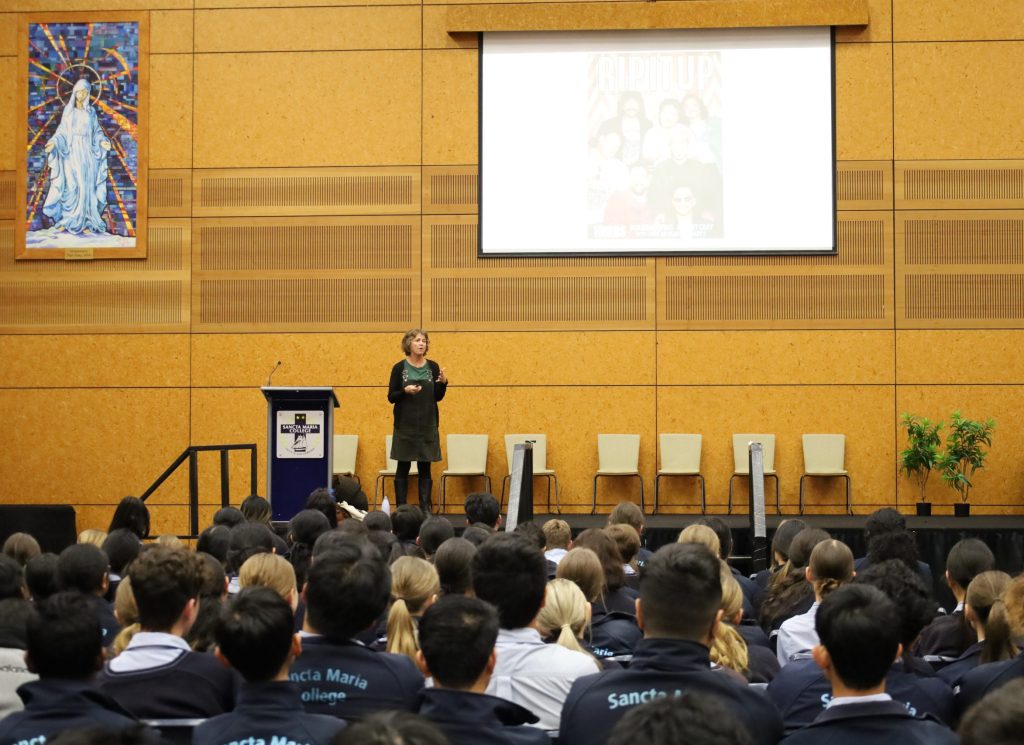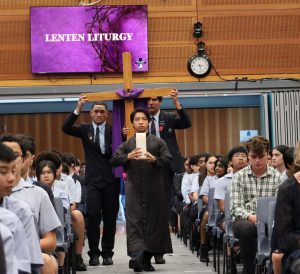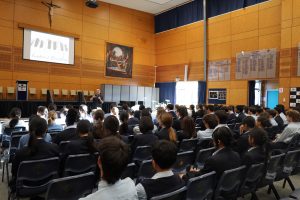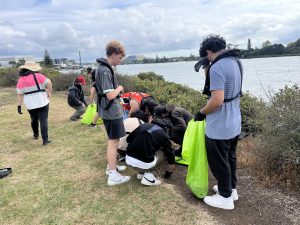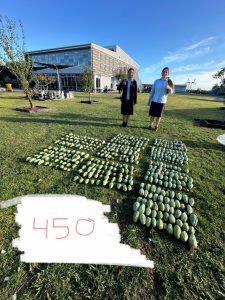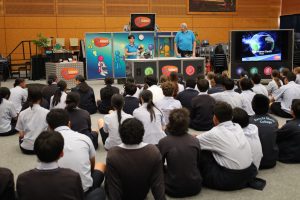On Monday 24 July 2023, visiting author Anne Kayes inspired junior students as she gave an eye-opening talk on creative writing, and later led an engaging writing workshop, during Writers’ Week. Students from years seven to ten were privileged to listen to Anne Kayes’ enthralling presentation where she educated us all on the backstory of her novels, including how the events of the Apartheid inspired her debut young adult novel, ‘In Our Own Backyard’.
Anne taught students about the racist, discriminatory, and divisive system of Apartheid that led to the Gleneagles agreement between commonwealth countries. Between 1948 and the early 1990s, the cruel Apartheid was a system of racial segregation that divided South Africa, separating people into categories of white, coloured (mixed race), and black (Bantu). The all-white government created legislation that treated white people as superior in legal, social, healthcare, and education systems. For example, certain benches, train stations, and bathrooms were designated for white people, with punishment for any non-whites who used those facilities. The Gleneagles agreement, signed in Gleneagles, Scotland, stated that the countries who signed would refuse to play sport with South African teams. However, New Zealand broke this agreement when, in September 1980, the NZRFU (New Zealand Rugby Football Union) invited South African rugby team the Springboks to tour New Zealand in 1981.
At the time, many New Zealanders were boycotting South African products, in the hopes that pressure would be put on the South African government to stop the Apartheid. When the Springbok Tour was announced, New Zealand revolted against the news. Leading up to the tour, there were numerous protests nation-wide. The whole country was divided in two: one side believed the games should go ahead, whereas the other was strongly against the tour. Arguments ripped families apart, putting family gatherings on hold and sparking debates on whether politics had a place in sports. Despite the anger, the New Zealand Government still refused to stop the tour, and the Springboks arrived on 19 July 1981.
Massive, organised protests erupted before and during every game of the 56-day tour, fighting to stop the matches. Anne was involved in the anti-Springbok tour protests as a young teenager. With her family, she peacefully protested the tour, and witnessed the horrors at the protests, which quickly turned violent when tour supporters and anti-tour protestors fought one another in the streets. Riot police were called out, armed with battens, shields, and tear gas, and many people were injured. On 25 July 1981, protestors invaded the pitch in the first of two cancelled games.
During the covid lockdown, Anne was at home with her children and their friends when she realised how little the young people of today know about the Springbok tour. Despite the lack of knowledge about the Springbok tour, it is an important part of New Zealand history and an event that impacted teenagers in the 1980s like covid impacted teenagers of today. Her novel, partially inspired by her own experiences, follows fifteen-year-old Eliza (Liza) as she handles racism on the tour and in her own community. Students loved hearing Anne read a chapter from her book, and many later rushed to the library to pick up a copy of this enthralling tale.
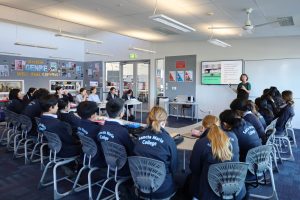
Students practiced detailing the appearance of their character, providing information about their senses, stating their inner thoughts, incorporating dialogue with gestures, and adapting the setting to represent the emotions of the character. With the prompt to write about someone who is hurrying to the bus stop to catch the earlier bus and evade their bullies, everyone took a different angle and adapted the prompt and new techniques to their unique writing styles. Students were then able to read their short story aloud and receive constructive feedback from Anne to improve their writing. One key lesson many took away from the workshop was to create a tense plot, where an unexpected misfortune befalls your protagonist.
Thank you so much to the school, librarians, and staff who made this wonderful event happen for the privileged students; and to the fabulous author Anne Kayes for her wonderful presentation and workshop.

